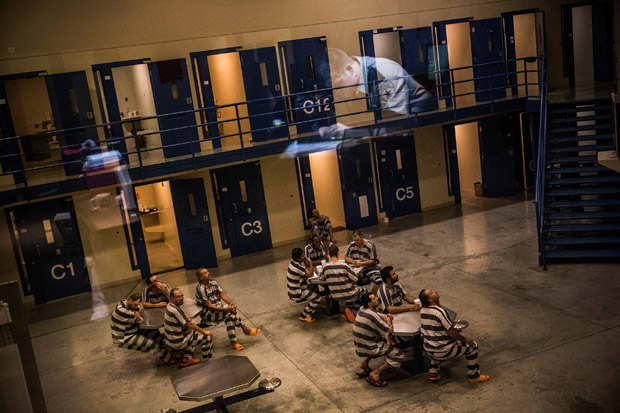Diane’s farewell message
After 52 years at WAMU, Diane Rehm says goodbye.

An officer is reflected in the glass as inmates sit in the county jail on July 26, 2013 in Williston, North Dakota.
While convicted criminals are usually sent to do their time in prisons, U.S. jails are typically for those awaiting trial, and those who have been deemed dangerous or a flight risk. But according to a new report, U.S. jails have today become overcrowded warehouses for vulnerable members of society. Many are too poor to post bail, or are suffering from mental illness or addiction. Nearly 75 percent of those in jail are there for non-violent crimes, some as minor as traffic violations. Now there are new calls to re-think who we put in our jails, and how long we keep them there. A conversation about reforming our local criminal justice systems.
After 52 years at WAMU, Diane Rehm says goodbye.
Diane takes the mic one last time at WAMU. She talks to Susan Page of USA Today about Trump’s first hundred days – and what they say about the next hundred.
Maryland Congressman Jamie Raskin was first elected to the House in 2016, just as Donald Trump ascended to the presidency for the first time. Since then, few Democrats have worked as…
Can the courts act as a check on the Trump administration’s power? CNN chief Supreme Court analyst Joan Biskupic on how the clash over deportations is testing the judiciary.